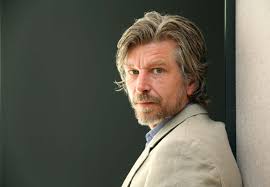
Readers love to read books about books, of course. And writers? They love to read about writers. Given the chance to interview an established author, developing and wannabe writers would most likely ask about routine and habit, as if it were some elixir they could purchase in aisle 7 of the local pharmacy, drink, and–voilà!–be not only published but famous.
This all came to mind as I was reading Karl Ove Knausgaard’s mini-essay, “Habits,” in his book, Winter. Here’s Karl Ove now:
“For some reason writers are often asked about their routines and habits, such as what time they get up to write, whether they write by hand or on a computer, whether there is something they can’t do without while they are writing. What it is about the writer’s role in particular that awakens public interest in their daily lives is hard to say, but there must be something, since this doesn’t happen with other comparable professions. Maybe it has to do with the fact that everyone can write and read while at the same time there is something exalted about the role of the writer, and that this gap, which seems incomprehensible, must be bridged. Or it may have to do with the fact that writing is voluntary, and that a person who writes can always refrain from doing so, which is unthinkable in the case of an employee, and therefore obscure or tempting. When I was young I read interviews of writers with avid interest. I wasn’t looking for a method, I don’t think; what I wanted to find out was rather what it took. A pattern, a common denominator: what makes a writer a writer? Now I know that all writers are amateurs, and that perhaps the only thing they have in common is that they don’t know how a novel, a short story or poem should be written. This fundamental uncertainty creates a need for habits, which are nothing other than a framework, scaffolding around the unpredictable….”
For Karl Ove, then, confusion and uncertainty heighten the natural human desire for order, structure, and scaffolding. Such logic brings Apollonian design into the messy Dionysian debris of creativity.
I especially like two points here. One about every writer, known and un-, being a mere amateur. That’s one box the wannabe can check! The other about everyone knowing how to read and write. Well, most bodies, if not every body. Not everybody knows how to paint, after all, or how to build a house or fly an airplane. Thus, the line of wannabes in those professions is considerably shorter.
Humans, as a defensive mechanism, have a quite high estimation of themselves. Therefore, if they can write, they are wont to say, “Why not me?” From there, it’s just a simple case of yes, reading a lot, but also of scrutinizing what famous writers “do,” right down to the mundane and banal.
To say, “Writers write” is rather boring and obvious, so the mystery of their success must be the hour they wake (say, 4 a.m.), the tools they use (say, a keyboard and screen), the ritual they follow (say, read a little King James Version of the Bible before beginning to write), the potions they drink (say, a little inspirational black coffee, no additions), the amount of time they spend at it (say, three hours straight before a dozen push-ups and a breakfast of eggs sunny-side up).
Carefully taking notes, the as yet undiscovered writer then mimics his hero, sends out his work, and awaits the editorial hosannahs and contracts. And that’s that. Until it doesn’t work. In which case, it must be the habits of another writer that are right. It’s only a question of finding that writer.
So if you’ll pardon me, I think I’ll put on U2’s “I Still Haven’t Found What I’m Looking For” and continue the search….